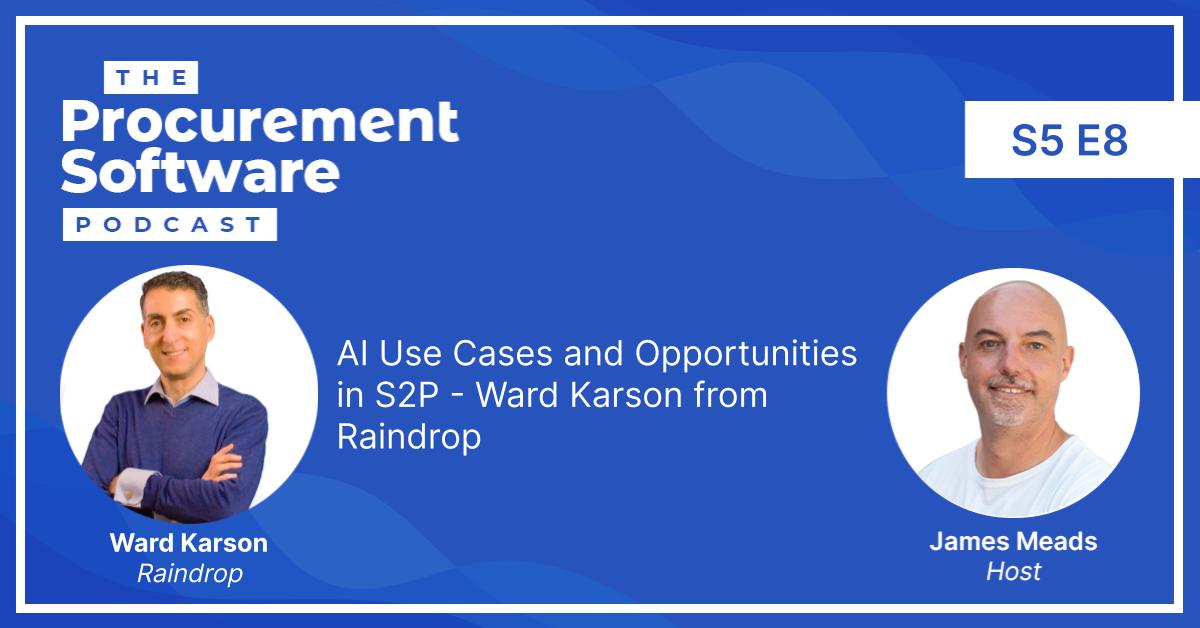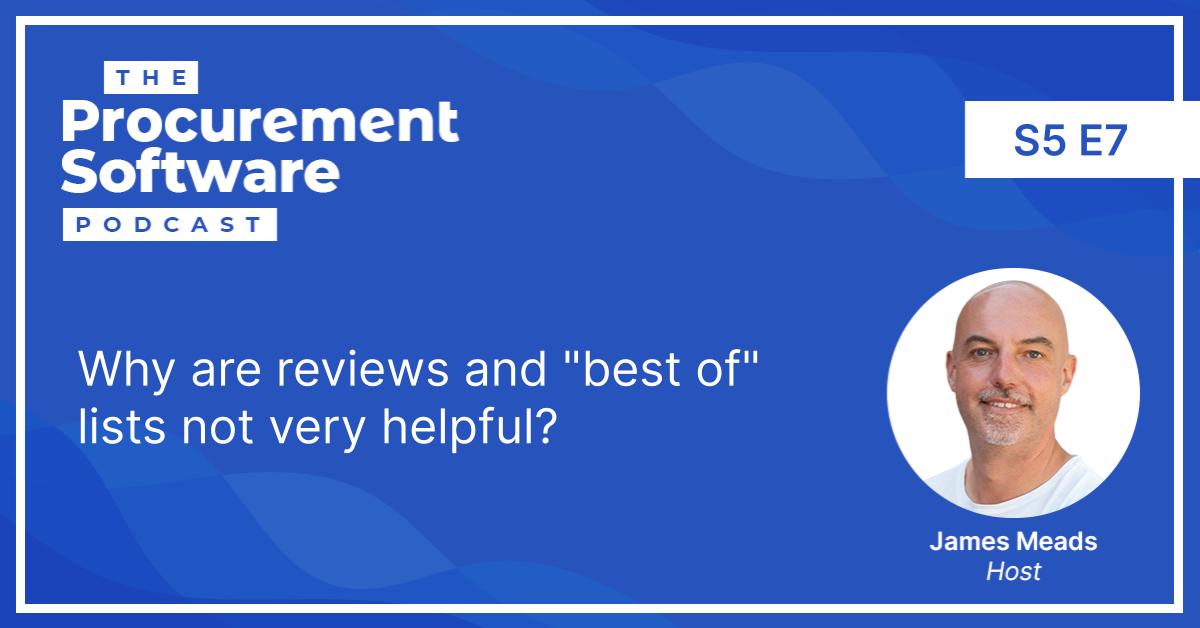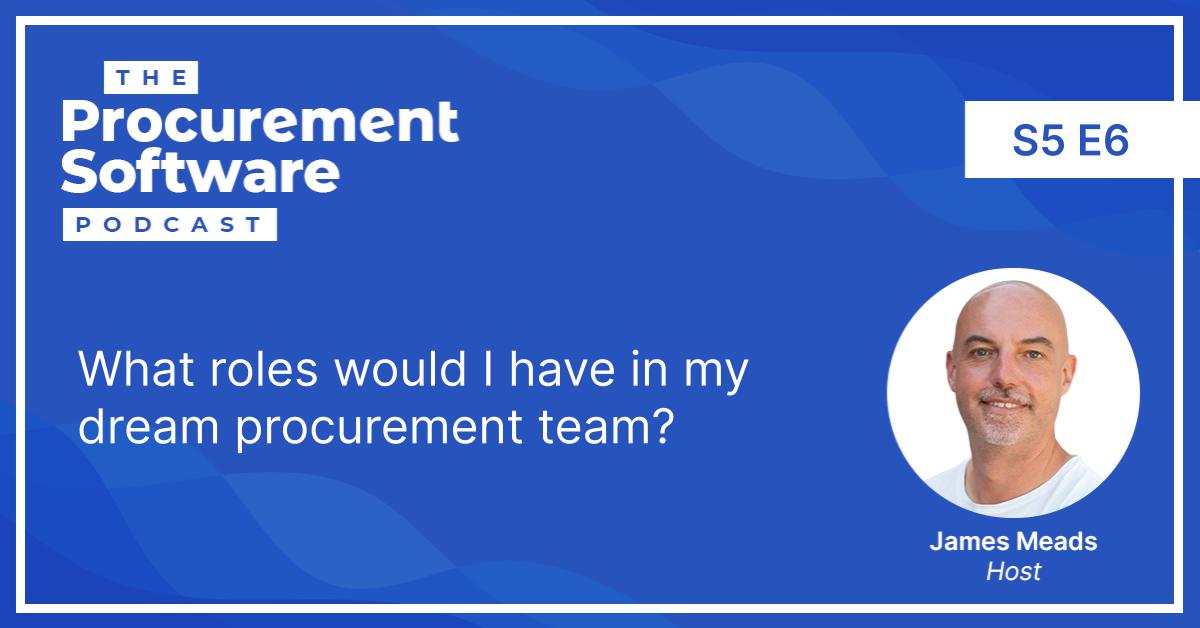This week we’ve got another informal chat from The Procuretech Pub livestreams. I’m talking to Dr. Wolfgang Schnellbächer from BCG, the author of a new book fresh off the presses – Profit from the Source: Transforming Your Business by Putting Suppliers at the Core.
Supplier-centric transformation and the future of procurement
I ask Wolfgang for a quick bit of background, before we move on to talking about his book.
He explains that he is currently leading procurement for BCG across Europe, the Middle East, Africa, and South America. He focuses on procurement transformations across different industries, including automotive.
In particular, Wolfgang says that he enjoys expanding the mandate for procurement for wider value generation, using technology.
I ask Wolfgang about common mistakes in how organisations manage their procurement teams internally.
He says that, interestingly enough, many of the biggest companies make the biggest mistakes – 50, 60, perhaps even 70 percent of a company’s overall budget is managed through suppliers by procurement. Oftentimes it goes even higher. If you look at how much time CEOs spend thinking about suppliers or procurement, you’d be surprised: 1% of their day, which is around seven minutes. There is not enough focus on procurement, when there’s such big potential in terms of overall spend numbers.
Sales or sourcing? Why businesses need to shift their focus
I ask Wolfgang why procurement doesn’t get the same level of attention as sales.
He thinks that this goes overlooked because most CEOs come from a sales background. It’s a legacy issue that has to change.
Look at Apple – Tim Cook, Apple’s CEO was a CPO before that. He’s always thinking in terms of profit from the source, and it’s paid off for them.
I go on to ask Wolfgang if this means we need to get CEOs on board, so that organisations can view procurement differently. Or is it more simple, that procurement just needs a bigger training budget?
Wolfgang thinks it’ll need a structural mandate to empower procurement. As an example, he asks us to imagine an engineering company: It may have relatively few engineers in-house, but imagine every engineer in that company’s supply chain, all the way down the tiers… It’s a huge number of people that could be coming up with great ideas for that company. It’s frustrating that procurement always gets so little time and money spent on it, so late in the process.
He also agrees with my second point on training – we need to train people better. It all comes down to experience and expertise. If you have people working in steel procurement, they should have worked in a steel plant. Industry experience really matters.
Category specific experience – why procurement deserves experts
CPOs often move their procurement professionals around, presumably thinking that it’ll broaden their experience and expose them to more categories. But I put it to Wolfgang that he’s almost saying the opposite – procurement experience only has so much value, and it’s category-specific experience that really counts.
He says that procurement people should have technical expertise in what they’re buying. They need to be able to trigger ideas from suppliers. This way you can align ideas coming from the inside and outside of the company.
He thinks that many procurement professionals do this already – they do think deeply into their categories and they can innovate. But this potential is never tapped, they’re not heard in the organisation because they come into the process too late, and are often only expected to give a cost focus.
We need to give a mandate for these people to speak up more. Again, he mentions Apple as an example.
He also raises the pandemic – it was procurement in the end that solved those issues.
I say this is all very well and good in theory. But go on to share some of my own experiences as an under-appreciated category manager: A lot of administrative busy work that companies dump onto procurement professionals, despite it not really being their job. Don’t we need to fix that, before we can get to the good stuff Wolfgang’s talking about ?
He says it’s a big challenge, but also a massive opportunity. We need to do things in parallel. We now have AI that can help us in all the key value dimensions – savings, innovation, risk, sustainability…
If we’re asking for a bigger mandate, it’s great to compliment that with powerful tools. But neither tools nor mandate can get the job done without the other. It’s going to have to be a synchronised process.
Going bionic
I ask Wolfgang about the phrase ‘going bionic’ from his book – the idea of integrating together human ingenuity with technological innovation. This seems to encapsulate what he’s trying to say here. Could he talk us through what a successful change management process looks like, in terms of ‘going bionic’?
Wolfgang brings up the case of a German automotive company. He started to work with them a few years ago, and back then the indirect procurement function was not the place to be.
We laugh about this – it rarely is!
But people there were feeling utterly powerless, like every day there was a wasted day. It was the last point from which anyone could make meaningful decisions. But in the end, the two things we just mentioned happened in parallel. One, a strong roadmap laid out in terms of mandate requests, for example being involved early on in IT sourcing. And two, great enablement through capabilities, for example new tools and technologies. They used those powerful tools as a showcase – look at what we can do now. And this supported the mandate.
I ask specifically about that mandate – how did they convince the CEO to deliver that?
He says you need to come from value. Sell procurement as the secret to CEO happiness, or the secret weapon to leapfrog competition. If CEOs manage procurement correctly, they can have whatever they need for their overall company strategy, be that savings, quality, speed, reduced risk… It is possible.
A bigger mandate for procurement – what CEOs need to hear
Everyone’s complaining about supplier shortages – that’s unsurprising, if the CEO only spends seven minutes a day thinking about suppliers!
I say that I often see it like a leaking bucket, or a tyre with a puncture – sales or revenue is the water pouring in, but lack of effective supplier management is a hole that this value flows straight back out of.
Wolfgang says this is a great analogy, before we go to a quick break.
I say that it’s easy to convince CEOs with BCG stood behind him, but what tips would he have for chief procurement officers looking to do the same?
He says that procurement is often too far from procurement’s thoughts. Yes, CEO’s don’t think about procurement, but it works the other way round. He also thinks it’s important to make things tangible – share samples, share use cases, let the CEO see your hard work.
If we’re going to create this mix of technology and human potential, what are some of the common myths out there? For example, there’s this feeling that robots and technology can replace human roles. What does Wolfgang think a procurement team of the future looks like?
He says the future can be bright if we make it that way. Yes, some jobs and job profiles will be reduced by technology. But there are many new tasks coming up that deserve our focus, as procurement. If we can get these wide mandates to trigger creativity, then there is certainly still a huge job for procurement to do, that can not easily be replaced by a bot.
Technology doesn’t just reduce redundant tasks, but it helps make better choices in strategic tasks. Technology can steer us, not by becoming our boss, but by becoming a smart adviser.
I agree – we need technology to take away these mundane tasks, because things like ESG and risk are increasing procurement’s workload.
Is eliminating busy work the first step towards transformation?
Wolfgang thinks so, but eliminating tasks is scary – it makes people think of job losses, being replaced. So you have to excite first, with all the things that those employees could achieve if they weren’t wasting so much time. You have to excite with the tools, the technology needed to use that new time even more effectively.
I bring up legacy suites, and how a lot of them don’t do the things we’ll need, going forwards. Looking to risk management and crisis avoidance today, how can companies reduce risk?
Wolfgang says there are three things we need to be doing.
- Bringing increased transparency – risk is wide. It starts with financial insecurity but goes on to disaster risks, pandemic risks, war risks. Just before the war in Ukraine, producers of trucks moved their production out of the country, and why? Because Russian border activity was so costly that it couldn’t possibly have been a bluff. Broad enough insight into procurement can really help you see global events on the horizon.
- You need to have a defined tool box on risks. Buyers need to know their tools for risk management, just as well as they do already for savings.
- We need to get closer to suppliers. If you have a rare thing you need to distribute, who do you give it to first? The people you know. We’re so used to treating people at arms length, in procurement. But we need to understand that this time is over. We need a deeper understanding of our suppliers, so we need closer personal relationships.
Hope for global supply chains in a climate of deglobalisation
I ask Wolfgang what he thinks about onshoring, or de-globalisation. Is this a knee-jerk reaction, or is it still possible to manage complex global supply chains?
Wolfgang says that, although he does see de-globalisation already, he doesn’t want to give up on global supply chains. Finding the smartest supplier, producer, or manufacturer is a global process. You need to cast a wide net. So while some de-globalisation is necessary for resilience, we shouldn’t give it up. If we don’t do this, our companies will lose out and we will lose a lot of efficiencies.
I ask if Wolfgang thinks the tech currently exists to manage what he was just talking about.
He says no. The standard software can’t do it. But tailored solutions at individual companies could. We need specific answers to specific solutions. He gives the example of avoiding human rights abuses. We understand the metrics that feed into this (Wolfgang goes on to give examples), we can collect the data, and we can probably make something that works but there is no perfect AI solution for this that you can buy. It’s software that you have to build, using specific expertise, using your own data, for your own specific needs.
I agree that every company is different and that there’s no out-of-the-box solution for everyone. But I do question whether mid market companies can afford the kind of in-depth, DIY approach to software that Wolfgang is proposing.
The value of talent
We move on to talking about talent – what will this new supply chain environment we’re living in do to talent development and retention? What can we do to keep talent?
Wolfgang mentions the turnaround pyramid, and demographic shift in western countries – saying that there is something of an objective talent shortage. But yes, CEOs and CPOs need to go into hard discussions and conversations with talent. We need to advocate for procurement, and CPOs need to educate – not just the CEO but the entire company. Foster people making careers in your business, make them see that this is a great platform for them. And the last piece, of course, is technology. Investing in technology will attract the best new talent because they’ll want to work with that new technology. He talks about a company whose CPO started making content to promote new technologies within the company – articles, videos, podcasts, all to show people that they were using this latest tech and excite talent. It’s not about finding the right people, it’s about attracting them.
Wrapping up
The book was published on 21st June, by Harvard Business Review. In fact, it’s the first procurement book they’ve ever published. It will be in all good book shops, and also available on Amazon.
Stay in Touch
- Connect with Wolfgang on LinkedIn
- More details about Profit from the Source
- Visit ProcurementSoftware.site
- Sign up for the Procurement Software Newsletter
- Book an Intro Call and let’s talk all things Digital Procurement!
- Connect with James on LinkedIn
- Follow Procurement Software’s LinkedIn Page


